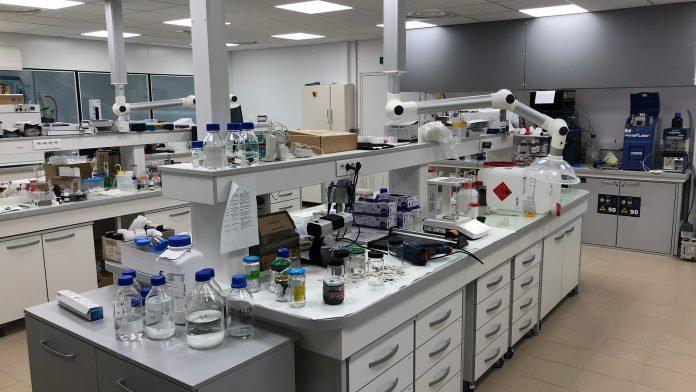Florent Allais from AgroParisTech speaks to The Innovation Platform about the importance of combining biotechnologies, green chemistry, and downstream processes when fostering sustainable innovation.
Faced with the depletion of fossil resources and fluctuating prices, climate change, and environmental and health issues, our society must not only find more sustainable and safer goods, but also devise and optimise durable industrial production processes to produce them. To engage in such an industrial revolution, scientists have turned to biomass, as well as green chemistry and biotechnologies, to replace fossil resources and classic petroleum-based chemistry, and offer novel bio-based and safe products. Making such a giant technological leap turns out to be quite complex as:
- Biomass is generally heterogenous in composition and recalcitrant to deconstruction
- Groundbreaking scientific and technological innovations must be created
- Biotechnological and green chemical processes are, very often, more costly than chemical processes
- Marketing new products is more and more difficult due to stricter regulations
There are thus many bottlenecks to overcome to successfully move from a 100% fossil resources-based economy to a durable, safe, and eco-friendly bioeconomy.
URD ABI, a multidisciplinary research team within the Pomacle-Bazancourt biorefinery
To address the aforementioned challenges, under the high patronage of local authorities (Grand Est region, Department de la Marne and Grand Reims), AgroParisTech, a French higher education and research public institute (Grande Ecole specialising in agricultural sciences, food sciences, environmental engineering, and forestry), created, in 2012, a research unit called URD ABI (R&D Unit Industrial Agro-Biotechnologies) to foster innovations in biorefineries.
Located in the CEBB (European Center of Biotechnology and Bioeconomy) at the heart of the Pomacle-Bazancourt biorefinery (Marne (51), France), URD ABI tackles the valorisation of biomass through the combination of white biotechnologies, green chemistry, and downstream process. With expertise in chemistry, polymers, materials, microbiology, biochemistry, molecular biology, chemical engineering and separation processes as well as in analytical chemistry, URD ABI is able to conduct multi- and transdisciplinary fundamental as well as applied research projects, with the ambition being to develop and optimise sustainable industrial processes and high value-added products from agro-resources (e.g., biorefineries by-products, agro-waste). Specifically, ABI’s scientists focus on the development of platform molecules (synthons), as well as on bio-based functional molecules/ingredients (e.g., antimicrobials, antioxidants, anti-UV, flavouring agents) and polymers/material, which can be used in fine chemistry, the food sector, the pharmaceutical sector, and the cosmetic industries, as well as in biocontrol.
Although URD ABI is located in a local biorefinery and has many collaborations with local, regional, and national academic and industrial partners, it is also involved in an international network with key players in its field of expertise (i.e., green chemistry, biotechnologies, and downstream process). Among the various research projects currently investigated within URD ABI, below is a discussion of those which best illustrate the benefits of working in a multidisciplinary environment with a national and international collaborative perspective.
Safe, bio-based, and biodegradable UV filters from wood, wheat, and mustard
With an internationally recognised expertise in phenolic compounds, URD ABI engaged in the development of non-toxic and bio-based alternatives to decried chemicals found in sunscreen lotions by mimicking the secondary metabolites, such as sinapoyl malate, that plants produce to protect themselves from UV. In collaboration with French experts in synthetic biology (Abolis SA, MCALIS – INRAe), endocrine disruption (INSERM), and an industrial leader in cosmetics (Givaudan Active Beauty), URD ABI has devised a new integrated value chain that transform sugars and phenolic compounds found in forestry, wheat, and mustard by-products into non-endocrine disruptive sustainable UV filters through the use of fermentation and green chemical processes (Agence National de la Recherche-funded SINAPUV project).
The optimisation of the structural design of these compounds was made possible by a strong and long-term collaboration between URD ABI and Professor V Stavros from the University of Warwick, UK. Thanks to their expertise in physical chemistry, we have been able to devise UV filters that exhibit potent anti-oxidant, anti-ageing and anti-pigmenting properties, as well as great photostability.1 It is noteworthy to mention that the scale-up and commercialisation of the most promising candidates is now being considered.
From UV filters to molecular heaters for crops
Through in-depth studies conducted in collaboration with our colleagues from Professor T. Zwiers’ group at Purdue University (USA), we have demonstrated that sinapoyl malate and analogues convert UV radiations into heat.2 Building on these findings, a consortium led by Stavros and involving URD ABI as well as other European academics (the universities of Warwick and Bristol, UK; Aix Marseille Université, France; Radboud University and the University of Amsterdam, the Netherlands; and BFR, Germany) and one industrial partner (PlantResponse Biotech, Spain) currently explores the design, production, and biological properties of sinapoyl malate-inspired molecular heaters that could boost crops growth, protect crops from frost, and allow crops culture at higher altitudes (the BoostCrop FET Open H2020 project).
Turning sawdust into flavours, green solvents, and drugs intermediates
Besides phenolics, URD ABI also has a strong expertise in the valorisation of cellulose, and more particularly with levoglucosenone (LGO), a chiral α, β-unsaturated bicyclic ketone that Circa Group, an Australian company with which we have been collaborating with for over five years, produces at the multi-tonne scale from sawdust (a byproduct of the paper industry). Starting from LGO, URD ABI has devised and patented sustainable biotechnological or chemical processes allowing the production of high value-added synthons (e.g. HBO),3 flavour4 (dairy lactone) and antiviral-intermediate D-ribonolactone,5 in partnership with Circa Group, the Université de Reims Champagne-Ardenne (Professor A Haudrechy, France) and the University of New England (Professor B Greatrex, Australia).
Moreover, in collaboration with the University of Florida (Professor J Stewart, USA), URD ABI has also worked on a biotechnological process towards green solvent Cyrene,6 complementary to the chemical one developed by Professor J Clark (University of York, UK). These two processes will be scaled-up and industrialised through the H2020 BBI Flagship Resolute project recently granted by the EU.
What’s next for URD ABI?
In only seven years, URD ABI has become one of the world’s leading groups in biomass valorisation, and more specifically on phenolics and cellulose-derived LGO. This success relies on three main assets: our scientists’ expertise, our multidisciplinary approach, and our vast, strong and trusted worldwide collaborative network. To go the extra mile, URD ABI must strengthen its collaborations with both bioeconomy experts, biomass producers, and by-product providers to ensure biomass/by-products availability, price, and quality. Indeed, from a biorefinery perspective, to offer an economically and industrially relevant industrial cluster, one must consider the entire value chain that goes from the biomass to the end products. In other words, we must extend the multidisciplinarity concept further!
References
- Horbury et al. Nature Commun. 2019, 10:4748
- Dean et al. J. Am. Chem. Soc. 2014, 136, 14780
- Bonneau et al. Green Chem. 2018, 20, 2455
- Peru et al. Molecules 2016, 21, 988
- Moreaux et al. Eur. J. Org. Chem. 2019, 7, 1600
- Mouterde et al. Green Chem. 2018, 20, 5528
Florent Allais
Professor of Green Chemistry
Director
URD ABI – AgroParisTech
+33 633698126
florent.allais@agroparistech.fr
Tweet @URD_ABI
www.chaire-abi-agroparistech.com
www.linkedin.com/company/urd-abi-agroparistech
Please note, this article will also appear in the third edition of our new quarterly publication.









